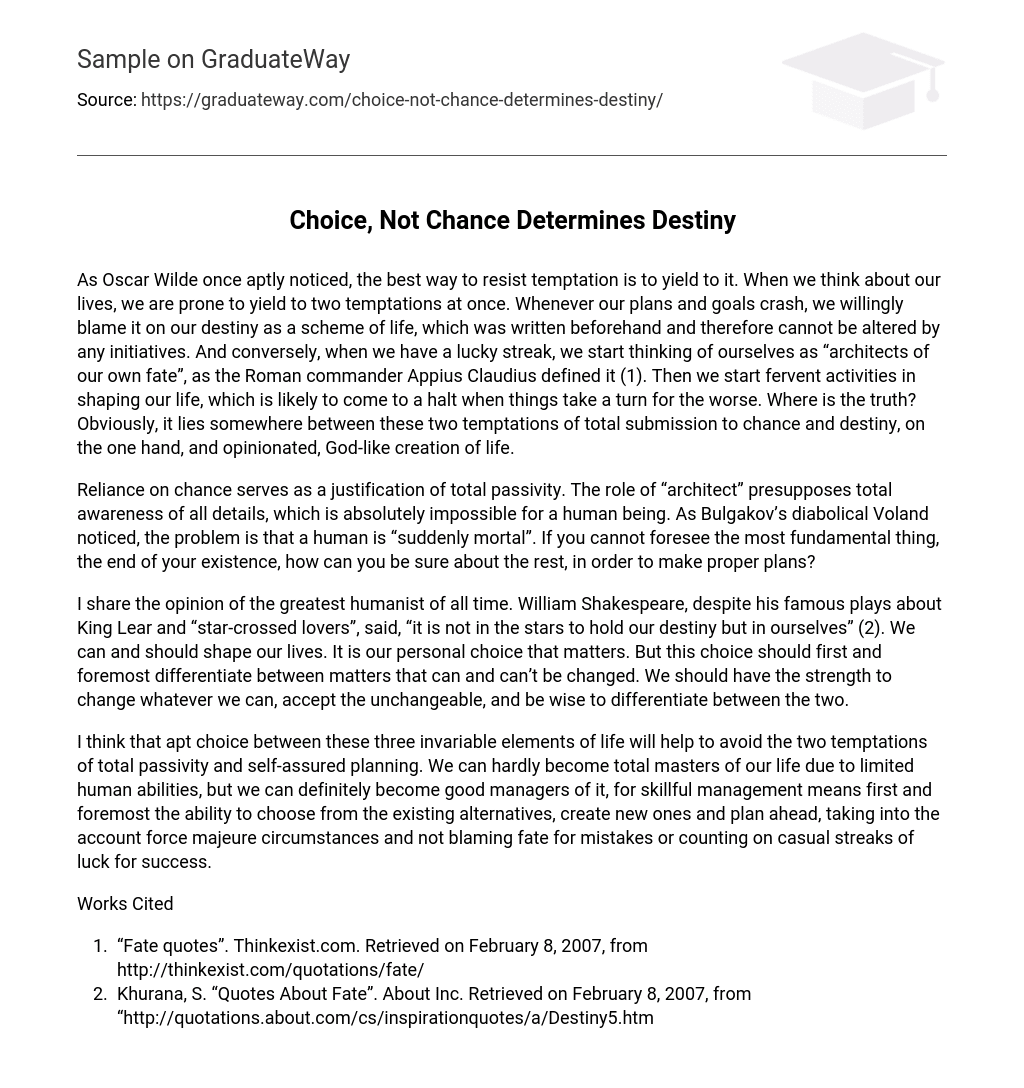As Oscar Wilde once aptly noticed, the best way to resist temptation is to yield to it. When we think about our lives, we are prone to yield to two temptations at once. Whenever our plans and goals crash, we willingly blame it on our destiny as a scheme of life, which was written beforehand and therefore cannot be altered by any initiatives. And conversely, when we have a lucky streak, we start thinking of ourselves as “architects of our own fate”, as the Roman commander Appius Claudius defined it (1). Then we start fervent activities in shaping our life, which is likely to come to a halt when things take a turn for the worse. Where is the truth? Obviously, it lies somewhere between these two temptations of total submission to chance and destiny, on the one hand, and opinionated, God-like creation of life.
Reliance on chance serves as a justification of total passivity. The role of “architect” presupposes total awareness of all details, which is absolutely impossible for a human being. As Bulgakov’s diabolical Voland noticed, the problem is that a human is “suddenly mortal”. If you cannot foresee the most fundamental thing, the end of your existence, how can you be sure about the rest, in order to make proper plans?
I share the opinion of the greatest humanist of all time. William Shakespeare, despite his famous plays about King Lear and “star-crossed lovers”, said, “it is not in the stars to hold our destiny but in ourselves” (2). We can and should shape our lives. It is our personal choice that matters. But this choice should first and foremost differentiate between matters that can and can’t be changed. We should have the strength to change whatever we can, accept the unchangeable, and be wise to differentiate between the two.
I think that apt choice between these three invariable elements of life will help to avoid the two temptations of total passivity and self-assured planning. We can hardly become total masters of our life due to limited human abilities, but we can definitely become good managers of it, for skillful management means first and foremost the ability to choose from the existing alternatives, create new ones and plan ahead, taking into the account force majeure circumstances and not blaming fate for mistakes or counting on casual streaks of luck for success.
Works Cited
- “Fate quotes”. Thinkexist.com. Retrieved on February 8, 2007, from http://thinkexist.com/quotations/fate/
- Khurana, S. “Quotes About Fate”. About Inc. Retrieved on February 8, 2007, from “http://quotations.about.com/cs/inspirationquotes/a/Destiny5.htm





